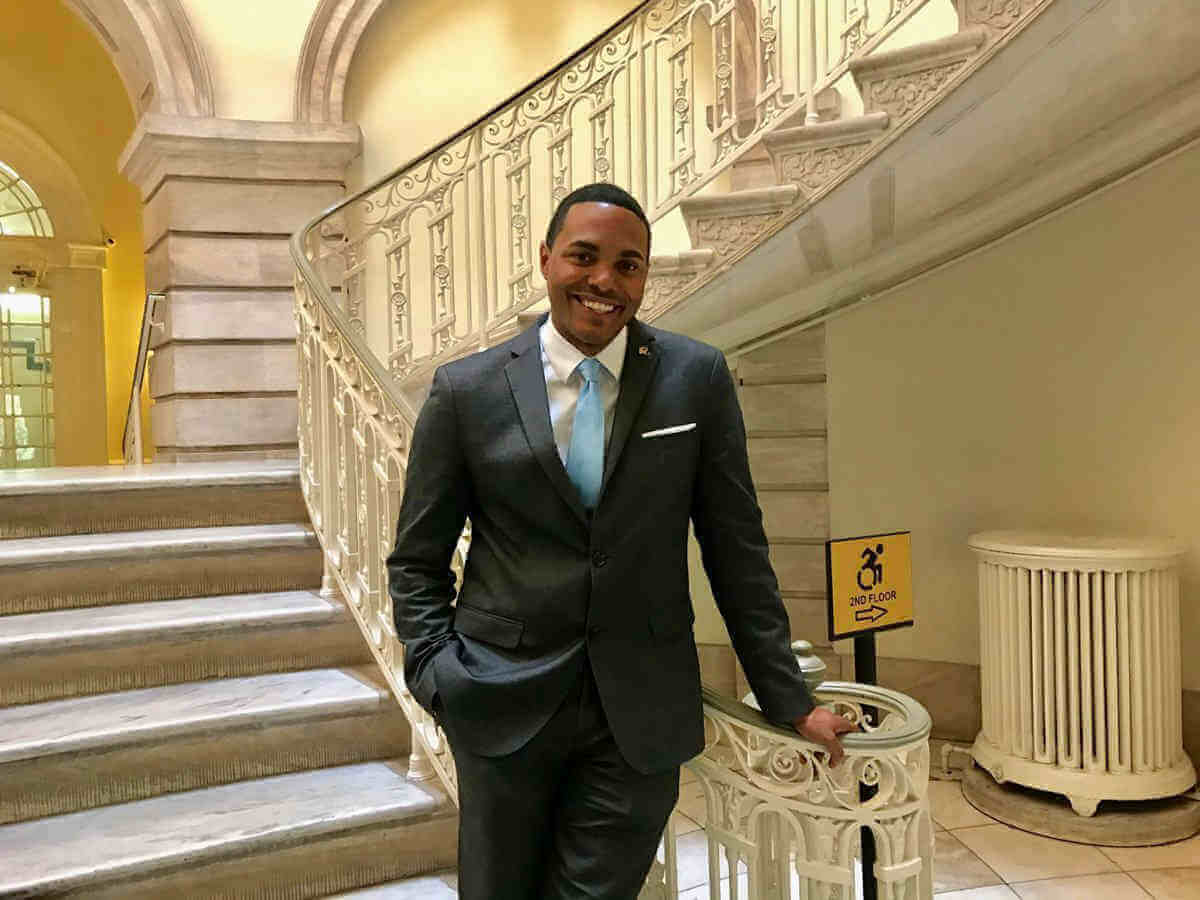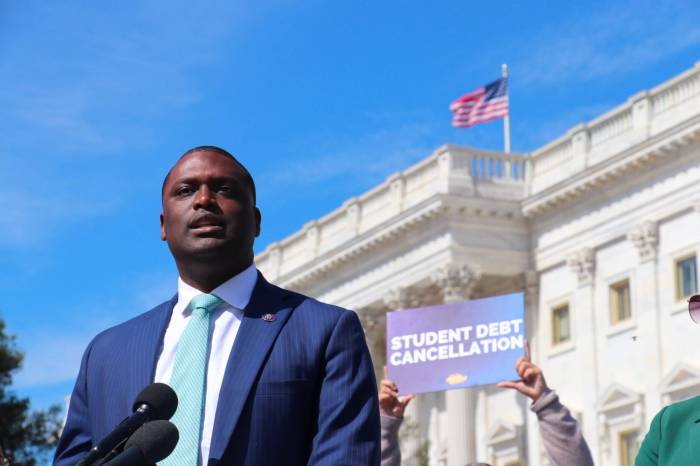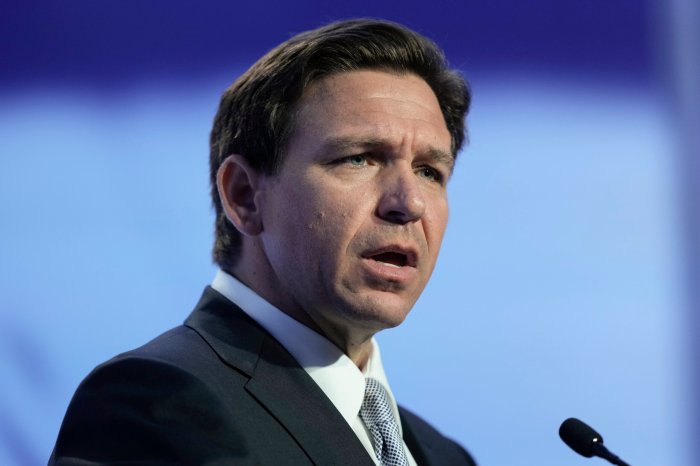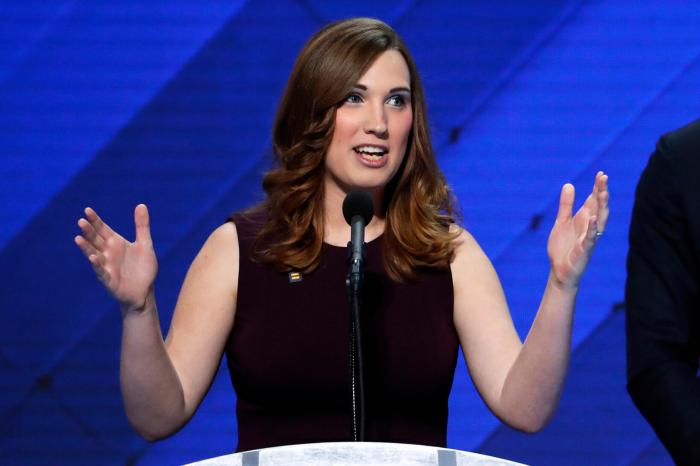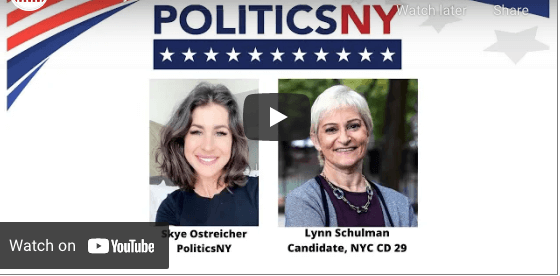The long wait appears to be over.
Unofficial results show out that out gay congressional candidate Ritchie Torres of the Bronx easily won his race in a deeply blue district, while another gay Democrat, Mondaire Jones of Northern Westchester and Rockland County, scored a comfortable double digit victory in another historically blue district. The victories by Torres and Jones cap an historic rise to Capitol Hill by each of the two men.
With nearly 270,000 votes counted out of a total of roughly 477,000 registered voters at 9 a.m. on Wednesday, Jones holds more than a 13 percentage point lead in a crowded field in the 17th District and appears on track to become the first out gay Black person elected to Congress, while Torres vanquished his only opponent en route to a victory in the Bronx’s 15th District, making him the first out gay Afro-Latinx member of Congress and the first out member of the New York City congressional delegation.
Pair of out gay New York congressional hopefuls clear final hurdle after contentious primaries
Within hours of polls closing at 9 p.m., the LGBTQ Victory Fund, which works to elect out queer public officials, declared both Torres and Jones winners.
In a written victory statement, Torres said, “We are at a crossroads in the Bronx and in our nation. The scourge of COVID-19 has laid bare the inequalities that for too long have been allowed to fester in our communities. The hit our neighborhoods have taken is stark, with a pandemic laid over an economic disaster with a recovery that helps only those at the top, not at the bottom. Quite simply, Bronxites risked their lives in the spring and while those they helped are recovering, our community continues to suffer. I will be a fighter for those forgotten workers.”
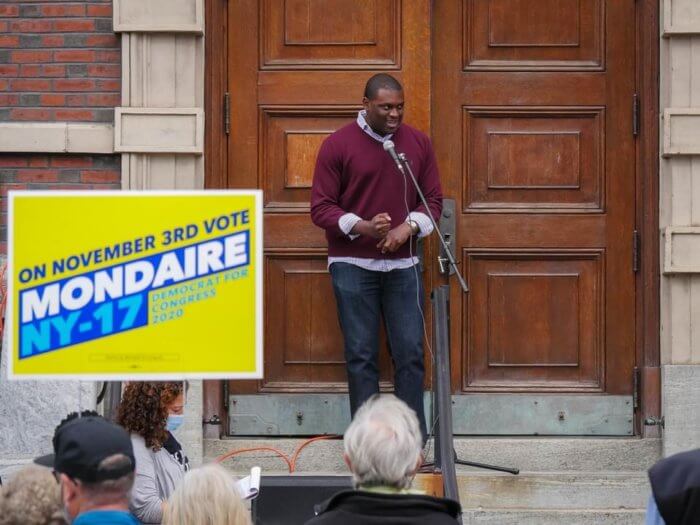
Jones and Torres will join four-term incumbent Sean Patrick Maloney — who represents the 18th District just north of Jones’ district but who found himself in a surprisingly tight two-point race with most of the election districts accounted for — to give New York State the largest LGBTQ delegation in Congress.
Jones, according to unofficial totals from the New York State Board of Elections, holds a lead of about 50.2 to 36.7 percent over Republican nominee Maureen McArdle Schulman and faced no real threat from third-party candidates Joshua Eisen of the ECL Party, Yehudis Gottesfeld of the Conservative Party, and Michael Parietti of the Serve America Movement Party.
Torres, who was endorsed by Gay City News ahead of the June primary, extinguished Republican Patrick Delices, running up the score with more than 84 percent of the vote with 100 percent of election districts reporting unofficial results. Delices was a one-time State Senate candidate who was crushed by State Senator Luis Sepúlveda of the Bronx in 2018.
Due to the coronavirus pandemic, a large share of absentee ballots were also submitted, but those votes will not be fully tallied until a week or more after the election.
Jones and Torres were widely expected to clear the general election hurdle after overcoming contentious and crowded primary competitions in their respective districts earlier this year. Jones tallied nearly three times as many votes as the second-place finisher in an eight-person primary contest that also featured Assemblymember David Buchwald and State Senator David Carlucci. Torres fended off a collection of formidable foes in the June race, including Assemblymember Michael Blake, who is also vice chair of the Democratic National Committee; former City Council Speaker Melissa Mark-Viverito; and an entrenched anti-LGBTQ lawmaker, Ruben Diaz, Sr., who admitted on Twitter on November 3 that he voted for President Donald Trump.
Torres, a 32-year-old city councilmember, is already the first out gay elected official in the history of the Bronx — a feat in and of itself considering the homophobia he endured during his first run for office in 2013. Seven years later, it is the Bronx — not Manhattan or any other borough — that has produced the city’s first out gay congressmember, and he again faced homophobic dog whistles when the Sergeants Benevolent Association labeled him as a “first class whore” in a recent tweet.
In an interview with Gay City News last year, Torres elaborated on his campaign for a seat that has long been occupied by outgoing Congressmember José E. Serrano.
“It’s an historic race,” Torres said during that interview in May of 2019. ”I’m Black, I’m Latino, I’m LGBT. I’m a millennial. I’m a child of the Bronx. My values and beliefs are shaped by who I am and where I come from. It’s true of most people but it’s true of me especially.”
Torres has managed to move the needle on LGBTQ issues at the city level, including his successful legislative effort to allow LGBTQ shelters to house youth up to 24 years of age, as well as his pending bill to allow certification of LGBTQ-owned small businesses.
Jones, 33, enters Congress having paved a much different path. He has not served in elective office before, but worked in the Obama administration’s Department of Justice, the Westchester County Law Department, and in the nonprofit sector.
Jones ran a campaign that challenged the status quo on multiple fronts. He supported initiatives like single-payer Medicare for All and the Green New Deal, which yielded pivotal endorsements from the likes of Representative Alexandria Ocasio-Cortez of the Bronx and Queens, as well as Senators Elizabeth Warren of Massachusetts and Bernie Sanders of Vermont, among others.
Torres and Jones also scored key endorsements down the stretch. Former President Barack Obama endorsed both of them and Democratic presidential nominee Joe Biden endorsed Torres.
Both Jones and Torres have expressed their desire to move important LGBTQ-related legislation at the federal level, including the stalled Equality Act, a nondiscrimination measure that would provide comprehensive protections based on gender identity and sexual orientation on areas including public accommodations, housing, and access to credit, among others. It would expand on the Supreme Court’s June Bostock ruling that concluded that LGBTQ employees are already protected in the workplace by the sex discrimination provisions of Title VII of the 1964 Civil Rights Act.
To sign up for the Gay City News email newsletter, visit gaycitynews.com/newsletter.
[Editor’s note: This story was updated at 9 a.m. on November 4 from its initial posting at midnight on November 3.]

